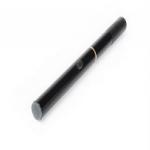How Will the New E-Cig FDA Regulations Affect Your Small Business?
This entry was posted on January 10, 2019 .

The latest regulations will likely have a serious impact on your company, no matter which part of the industry you operate in. Makers, distributors and sellers of e-cigarettes and related products have received a new set of rules to operate under.
E-Cigarette Regulations - Why Now?
The late 2018 rulings by the FDA brought e-cigarettes and similar items into the same category as cigarettes, cigars and more. The FDA explained it has regulated more traditional tobacco products since 2009. Rather than creating a new set of laws regarding vaping, the FDA gave itself wider responsibility.
The agency explained its stance on regulating e-cigarettes by suggesting vaping can be encouraged as an alternative to traditional smoking, but the FDA also does not want e-cigarettes to bring young people into nicotine addiction, thus making them more likely to begin smoking cigarettes. The vaping regulations were accompanied by assurances that regulations can change based on scientific breakthroughs and data.
Retail Changes
According to Forbes contributor Tara Haelle, there is now a solid line between specialty retailers and more general food shops and convenience stores. Brands can only sell mint, menthol and tobacco-flavored e-liquid through convenience and grocery stores, alongside unflavored offerings. More creatively flavored e-liquid is still legal, but can only be sold in specialized vape shops that don't allow entry to underage customers.
Furthermore, the future of online e-liquid retail is up in the air. The FDA insists upon age-verification tools to ensure kids aren't stocking up on vaping products on the internet. The exact technological requirements for these retail sites aren't yet finalized, however.
Community health sciences professor Michael Siegel told Haelle the moves made by the FDA may indeed help keep teens from ending up trying cigarettes, but that there is an odd oversight implicit in the vape regulations: While the stated goal is to prevent eventual cigarette use, cigarettes are still legal to sell in convenience stores and supermarkets, while numerous vape flavors are not.
Compliant Packaging Needed
The FDA's keen interest in vaping products, as seen in its choice to add them to the list of covered tobacco items, shows the need for compliant and accurate e-liquid labels. While new product categories such as e-cigarettes can seem like a retail wild west, prone to disruption and lacking hard-and-fast rules, vaping supplies are a topic of interest at the federal level. Your company should ensure its labeling strategy is in line with FDA vape regulations.
Working with a third-party labeling partner is one way to quickly and effectively address your compliance needs. Lightning Labels has been active in the vaping space for years, as the industry has expanded and branding has become an essential brand differentiator. Combining strict legal compliance with the latest in bold graphic design can give your products the visual appeal they need to compete in the e-cigarette space.
Request your FREE instant quote today.

 Custom Labels
Custom Labels  Custom Beverage Labels
Custom Beverage Labels  Custom Lip Balm Labels
Custom Lip Balm Labels  Custom Warning & Safety Labels
Custom Warning & Safety Labels  Perfume Bottle Labels
Perfume Bottle Labels  Bumper Stickers
Bumper Stickers  Custom Prop 65 Warning Labels
Custom Prop 65 Warning Labels  Custom Stickers
Custom Stickers